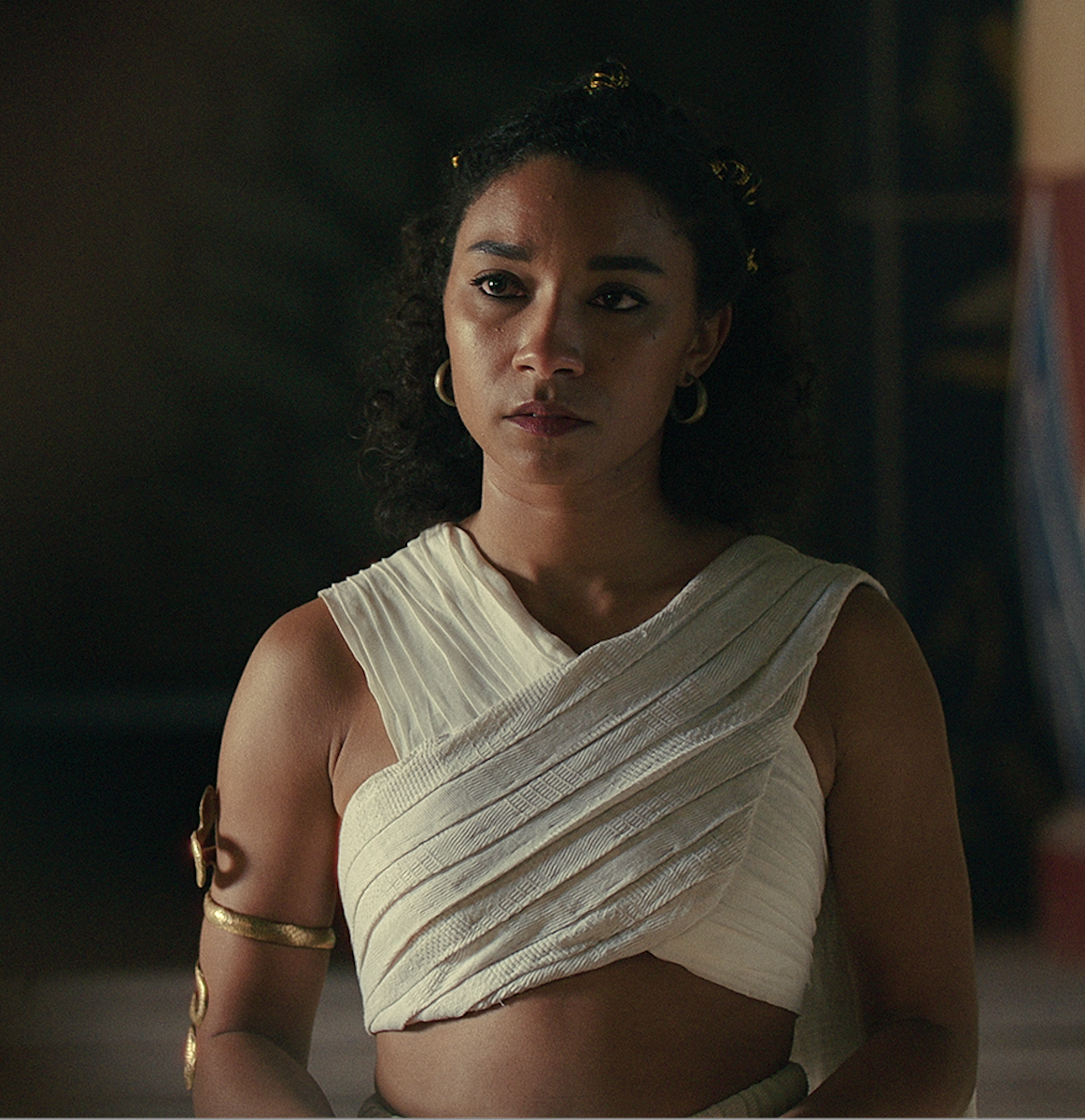By Sara Khorshid – Foreign Policy –
Western leaders and filmmakers have long denied the link between modern Egypt and its ancient heritage.
When former U.S. President John F. Kennedy was seeking to help Gamal Abdel Nasser’s Egypt rescue ancient temples from flooding in 1961, he made an interesting argument to convince Congress to approve the spending of $10 million of U.S. taxpayer money for this purpose: That Americans would be paying to save part of their own cultural heritage.
“We have … had a special interest in the civilization of ancient Egypt from which many of our own cultural traditions have sprung,” Kennedy wrote in a letter to Congress. A member of his administration, the State Department’s Philip H. Coombs, reiterated what the president had said, going even further in appropriating the ancient Egyptian civilization: “These monuments are great historical roots of all Western civilization. We are doing our own future generations in this country a favor, insofar as we are helping to preserve their own historical roots. This is not a bilateral gift in any sense.”
Egypt had called for international assistance in preserving its Nubian monuments that were threatened by flooding as a result of the construction of the Aswan High Dam; and the Americans, through a broader UNESCO effort, answered the call. While being busy scoring a point against the Soviets in the heated Cold War context of the times, they also casually laid claim to ancient Egypt. That was in 1961. It’s a pattern that has a long history and has persisted, continuing to frustrate Egyptians until today.
The latest iteration of this debate blew up last month with the release of trailers for Netflix’s Cleopatra, featuring the Black British actress Adele James playing the legendary Ptolemaic queen—a casting decision that has unleashed massive anger among Egyptians. While some of the reactions have been crudely racist, other criticisms have been motivated by historical grievances and the long-standing Western tradition of separating modern Egyptians from their ancient heritage—whether in the name of imperialist notions of Western civilization or Afrocentrism.
In the early 1960s, Kennedy—like many Westerners—talked about modern Egyptians’ links to antiquity as if they were too inferior to be related to a great civilization. This racist and colonialist attitude has manifested itself widely over the years, whether in tangible form, such as the continued possession of Egyptian cultural artifacts that were seized during the era of colonialism or in subtler ways, including through Egyptomania, the fascination with Pharaonic civilization that has existed for centuries, peaking during waves of Western imperialist expansion.
There is an emerging interest among some scholars in Cleopatra’s possible multiracial heritage (she is usually depicted as being of Greek Macedonian lineage, and the world saw Elizabeth Taylor cast as the Ptolemaic queen in the 1963 Hollywood movie). But even the writing of ancient history has suffered from racial bias and a marginalization of scholars from formerly colonized nations—and Egyptology is no different. It’s a field that was once sponsored by colonizing forces of Egypt and shrouded in racism toward modern-day Egyptians.
This leaves the scholarly and scientific works promoting Cleopatra’s whiteness or her Blackness inadequate. Rather than what color she was, the more pressing question is about the role of race in the production and dissemination of knowledge about Cleopatra and her history. To what degree were Egyptian academics involved in producing and writing this history?
The key question is about the role of race in the production and dissemination of knowledge about Cleopatra. To what degree were Egyptian academics involved in producing and writing this history?
These issues cannot be resolved by well-meaning American filmmakers simply deciding to cast Cleopatra as Black without involving Egyptians in this decision or the process. In doing so, they carried on the same tradition as Kennedy and as British and French colonizers of Egypt—denying modern-day Egyptians ownership of their history.
Most Egyptians’ objections to the show and the primary reason for frustration in Egypt is not due to racism and is not about Adele James’s being Black, per se. It is about the decision by the makers of the show to challenge historic anti-Black racism in the United States through revisionism of another racialized people’s own history without caring about how these people might react.
Adele James, a biracial Black actor, places a gold crown on her head as she portrays Cleopatra in Netflix’s new docudrama series. She is costumed in blue and gold eye makeup and other gold jewelry.

Amid the current Cleopatra fiasco, some Egyptians have gone too far, adopting populist rhetoric and promoting irrelevant, exaggerated, and often silly ideas about “Egyptian genes” that supposedly make up a race-based Egyptian identity. They have revealed a despicable racism in their attempt to refute Afrocentrists’ claims that ancient Egyptian civilization was essentially African and that ancient Egyptians were black.
This is part of a trend of extreme and xenophobic nationalism that emerged after the 2013 overthrow of the Islamist Muslim Brotherhood by Abdel Fattah al-Sisi, Egypt’s current president, who was the country’s defense minister at the time.
Opponents of the Muslim Brotherhood had feared that the group, given its ideological background, would try to distance the country from its ancient roots and seek instead to foreground Islamic and Arab heritage as the primary marker of Egyptian culture and memory. Many secularists, Coptic Christians, and other minorities feared that this would exclude them from their own country’s culture.
The result has been a populist call to “affirm the real Egyptian identity” (just a sample of the circulating vocabulary in Egyptian public discourse in recent years)—an authentic Egyptian identity that supposedly has nothing to do with Arabism or Islam and is exclusively based on ancient Egyptian heritage.
These calls have been backed by the state, whose number one enemy remains the Muslim Brotherhood. Sisi’s regime has endorsed a populist discourse of identity politics to justify its authoritarian crackdown on its opponents and critics as being necessary to protect the nation and its identity from foreign and “unpatriotic” enemies.
For example, a spectacular gala parade that the state held in 2021—on the occasion of the transportation of royal ancient Egyptian mummies from the Egyptian Museum to a new museum in Cairo—featured a performance where an Egyptian opera soprano, accompanied by a full orchestra, sang in an ancient Egyptian language—a rarity in official ceremonies. But the move comes against the backdrop of an increased promotion of ancient Egyptian civilization as the primary element of Egyptian heritage.
It was not always like this. Even if anti-Black racism and xenophobic attitudes have always existed in Egypt, the current trend began after 2013. Indeed, there was a time, particularly under Nasser in the 1950s and 1960s, when leaders of the African American Civil Rights and Black Power movements, including Afrocentrists, were friends of Egypt and Egyptians.
These close ties extended to the leaders of African nations and the pan-African movement at large. During the era of decolonization and the broader struggle against racism in the 1960s, Egyptians and pan-Africanists saw each other as sisters and brothers in the struggle against imperialism. The famous Black American scholar W.E.B. Du Bois visited Egypt in response to an invitation by Nasser; his stepson, David Graham Du Bois settled in Cairo in the 1960s. Nasser also received Malcolm X, Muhammad Ali, and other Black and pan-Africanist figures.
The historical solidarity between Egyptians and Black Americans and pan-Africans in fighting against racism and imperialism means that Black people are better positioned to understand Egyptians’ grievance today about Netflix’s Queen Cleopatra, which was made and produced without the involvement of the owners of this history just as the early Egyptologists of the past, in collaboration with colonizing powers, once developed this discipline with involving the people who are its namesake.
Netflix ended up using another racialized people’s history to further its own efforts to promote inclusion and identity politics.
That a group among those objecting to the Netflix show are using racist language should not detract from legitimate criticisms of the show, however. There is nothing wrong with Egyptians’ growing interest in pharaonic history and their reclaiming ownership of it, including as a form of defiance of the Western cultural appropriation of ancient Egyptian civilization—a practice rooted in imperialist history.
This is why a number of liberal-oriented Egyptian figures have voiced their objections against James’s depiction of Cleopatra. These include Bassem Youssef, the satirist who is often dubbed the Egyptian John Stewart, and Monica Hanna, an Egyptian archaeologist who spearheaded a campaign demanding the repatriation of the Rosetta Stone from the British Museum.
Hanna, for instance, wrote in a widely shared Facebook post: “When Egyptology was evolving as a science, the West dismissed the notion of Egyptian heritage so that we as Egyptians do not remember they have stolen this heritage.”
Adele James, shown from the waist up, watches something off-camera with a serious expression. She wears a white top and a gold arm cuff shaped like a snake, as well as other gold jewelry in her hair.
James, a British actor and screenwriter, stars in the four episodes of the Netflix program.NETFLIX
It is fitting that the hashtag used by social media users to criticize the Netflix series is #مصر_للمصريين (Egypt for the Egyptians), the slogan associated in Egyptian public memory with the 1879 Urabi revolt, one of the earliest milestones in Egyptians’ nationalist struggle against imperialism and imperialist hegemony, though it’s hard to tell whether the creators of this hashtag or those who use it had the Urabi revolt and its nationalist, anti-imperialist cause in mind. What is clear is that much of Egyptians’ rage over Netflix’s Queen Cleopatra now stems from a long-standing bitterness over the West’s separation of ancient Egyptian civilization from modern-day Egyptians.
Netflix and the makers of Queen Cleopatra should have been more sensible and respectful toward Egyptians’ valid concern and their demand to preserve and cherish their ownership of their prized heritage. They could have learned from Disney, which chose an Egyptian, Mohamed Diab, to lead the directing team of the ancient Egypt-inspired Moon Knight. Not surprisingly, the show has been praisedfor its authentic portrayal of modern Egyptian culture and for the way it blended modern and ancient Egypt together.
Netflix could have even learned from its very own Secrets of the Saqqara Tomb, which recognized and portrayed, quite beautifully, the roles played by Egyptian archaeologists, specialists, workers, and ordinary men and women in “unearthing” the tomb and “decipher[ing]” its history. In doing so, they parted ways from American pop culture’s long-standing tradition of marginalizing the most relevant people to every discussion of ancient Egyptian history.
The idea of correcting the entertainment business’s racism is welcome. After all, Hollywood is notorious for casting white actors in blackface or white actors to play Black or brown historical figures. Instead of breaking that cycle, Netflix ended up using another racialized people’s history to further its own efforts to promote inclusion and identity politics.
Ending the marginalization of Black and other minority actors on the screen is long overdue; and recognizing the roles of Black protagonists in history is important and much needed. But doing this at the expense of another nonwhite people victimized by Western colonialism and imperialism—and showing a lack of respect or understanding for this people’s demand to be recognized as the owners of their own history—is misguided and counterproductive. If the intention of Queen Cleopatra’smakers was to reverse decades of racism on the screen, what they ended up achieving is a perpetuation of this very racism.
________________
Sara Khorshid is a doctoral candidate at Western University in Canada, where she is writing her dissertation on the history of Egyptians’ postcolonial perceptions of the West as portrayed in Egyptian cinema during the Cold War. She previously worked as a journalist and columnist in Egypt for 15 years. Her work has appeared in the New York Times, the Guardian, HuffPost, Jadaliyya, and numerous other outlets. Twitter: @SaraKhorshid




